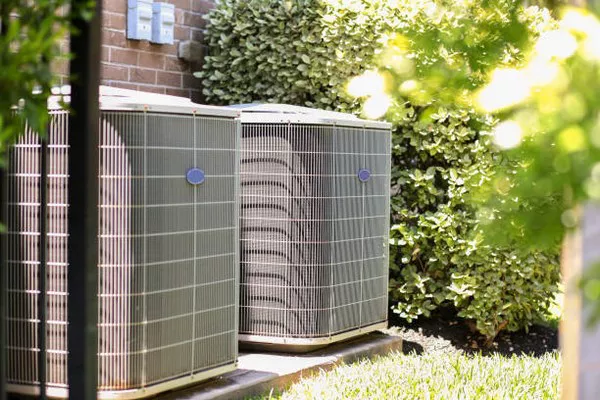As the summer months approach, the last thing any homeowner wants is for their air conditioning system to fail. The AC compressor is a crucial component of your air conditioning system, responsible for circulating refrigerant and ensuring your home stays cool. When this part breaks down, it can lead to significant discomfort and stress. Understanding the costs involved in fixing or replacing an AC compressor is essential for planning and budgeting. This article provides a detailed guide on the costs associated with fixing an AC compressor in your home, including factors that influence the price, potential repairs, and tips for choosing a service provider.
Understanding the AC Compressor
Before diving into the costs, it’s important to understand what the AC compressor does. The compressor is essentially the heart of your air conditioning system. It compresses the refrigerant and circulates it through the condenser and evaporator coils, facilitating the heat exchange process that cools your home. When the compressor fails, your air conditioning system cannot function properly, leading to inadequate cooling and increased energy consumption.
Signs of a Failing AC Compressor
Some common signs that your AC compressor might be failing include:
Unusual noises: Grinding, clanking, or hissing sounds can indicate mechanical issues.
Reduced cooling: If your AC is blowing warm air or not cooling effectively, the compressor might be at fault.
Frequent cycling: The compressor turning on and off frequently can indicate electrical problems or refrigerant issues.
High energy bills: A failing compressor can cause your system to work harder, leading to increased energy consumption.
System leaks: Refrigerant leaks can signal compressor problems, as the compressor may be unable to maintain the necessary pressure.
Factors Influencing the Cost of Repair or Replacement
Several factors influence the cost of fixing an AC compressor, including:
Type of Compressor: There are various types of compressors, including reciprocating, rotary, scroll, and variable-speed compressors. The type of compressor in your system will impact the repair or replacement cost.
System Size and Capacity: Larger systems with higher capacities will generally have more expensive compressors.
Brand and Model: Some brands and models are more expensive due to higher quality or advanced features.
Labor Costs: Labor costs vary by location and the complexity of the job. In metropolitan areas, labor rates can be significantly higher.
Extent of Damage: The extent of the damage can affect whether a repair is possible or if a complete replacement is necessary.
Warranty Status: If your system is still under warranty, the cost of replacement parts may be covered, significantly reducing the overall expense.
Cost Breakdown for Fixing an AC Compressor
Diagnostic Fees: Before any repair or replacement, a technician will diagnose the problem. This can cost between $75 to $150, depending on your location and the service provider.
Repair Costs: Minor repairs, such as fixing a refrigerant leak or replacing a capacitor, can cost between $150 to $400. If the compressor itself can be repaired, the cost typically ranges from $500 to $1,000.
Replacement Costs: If the compressor needs to be replaced, the cost can be substantial. A new compressor unit can range from $1,200 to $2,500, depending on the type, size, and brand. Including labor, the total cost for a replacement can range from $2,000 to $4,000.
Additional Costs: Additional costs can include refrigerant recharge ($100 to $300) and system cleaning or maintenance if required.
Cost Comparison: Repair vs. Replacement
Deciding between repairing and replacing the compressor can be challenging. Here are some considerations to help you decide:
Age of the System: If your AC unit is over 10-15 years old, it might be more cost-effective to replace the entire system rather than just the compressor.
Frequency of Repairs: If your system has required frequent repairs, replacing the compressor might not be the best long-term solution.
Energy Efficiency: Newer systems are more energy-efficient. Replacing an old compressor with a new, more efficient model can result in significant energy savings over time.
Warranty: Check if your compressor is still under warranty. If it is, replacement costs might be partially or fully covered.
Choosing a Service Provider
Selecting the right service provider is crucial for ensuring quality work and fair pricing. Here are some tips for choosing a reliable HVAC contractor:
Get Multiple Quotes: Obtain quotes from at least three different service providers to compare prices and services.
Check Credentials: Ensure the contractor is licensed, insured, and certified by recognized industry organizations, such as the North American Technician Excellence (NATE).
Read Reviews: Look for customer reviews and ratings on platforms like Yelp, Google, or the Better Business Bureau (BBB).
Ask for References: A reputable contractor should be able to provide references from previous clients.
Understand the Warranty: Make sure you understand the terms of the warranty on both parts and labor.
Preventive Maintenance Tips
Regular maintenance can extend the life of your AC compressor and help avoid costly repairs. Here are some preventive maintenance tips:
Regular Inspections: Have your system inspected by a professional at least once a year.
Clean or Replace Filters: Clean or replace air filters every 1-3 months to ensure proper airflow and reduce strain on the compressor.
Keep the Unit Clean: Keep the outdoor unit free from debris, leaves, and dirt to ensure efficient operation.
Check Refrigerant Levels: Ensure refrigerant levels are correct to prevent the compressor from overworking.
Monitor System Performance: Pay attention to any changes in your system’s performance and address issues promptly.
See Also The Cost of a Central AC Compressor: A Comprehensive Guide
Conclusion
Fixing an AC compressor can be a significant expense, but understanding the costs involved and the factors that influence these costs can help you make an informed decision. Whether you opt for a repair or a complete replacement, choosing a reliable service provider and performing regular maintenance can ensure your air conditioning system operates efficiently and effectively. By staying proactive and informed, you can keep your home comfortable and cool throughout the hot summer months.

